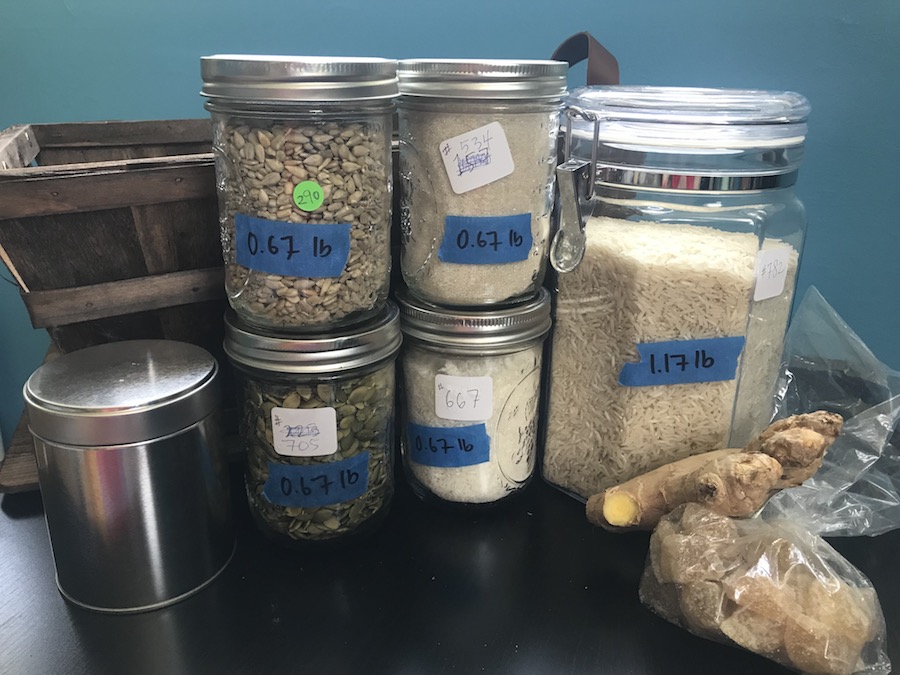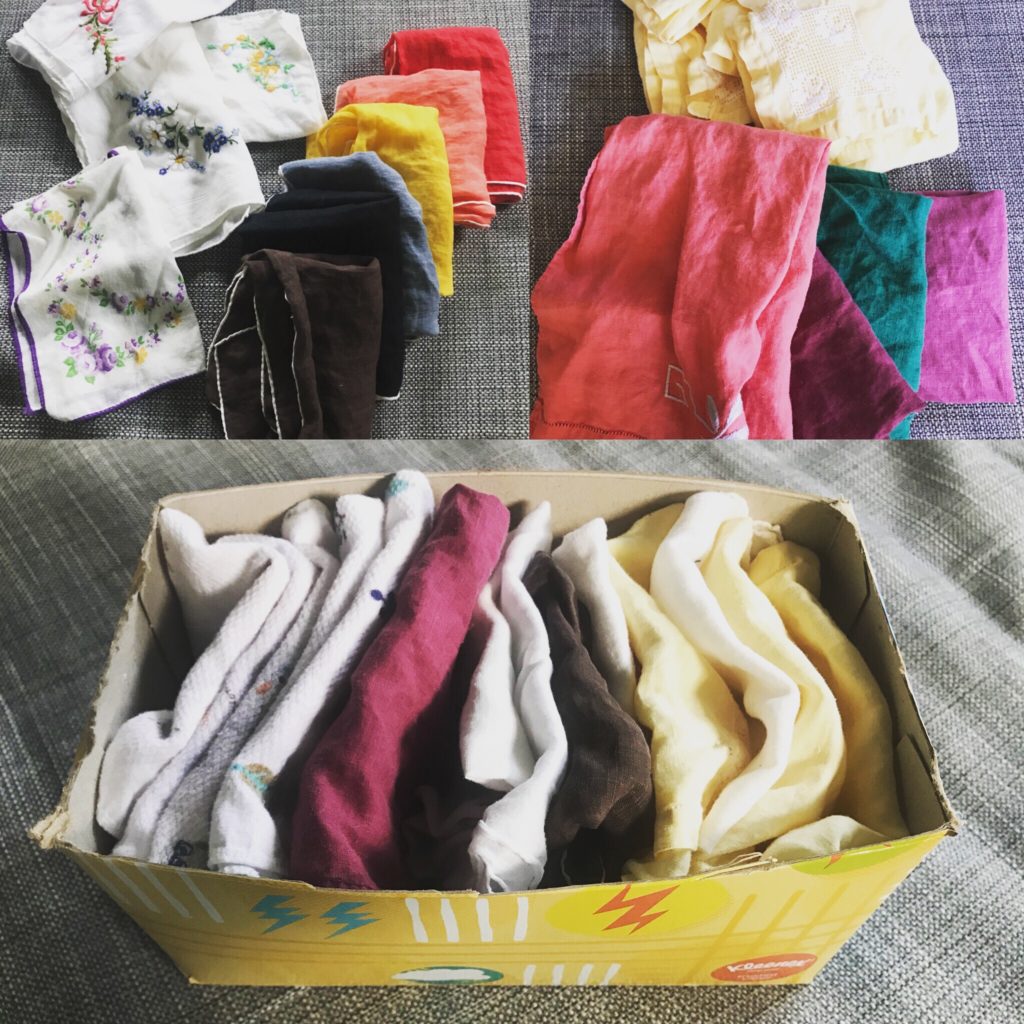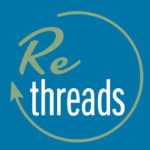Zero Waste Tips from Jen Doo

Thanks Jen Doo, a local zero waste enthusiast, for these great tips!
- Ditch single-use beverage containers.
Replace plastic water bottles with a reusable bottle – they’re sturdier and can usually hold more liquid and keep your water cold for longer periods, and you can just wash them and refill whenever you need. Bring your own reusable mug when you order coffee to-go. If you love sodas (or sparkling water, flavored tea, kombucha, etc.), try to opt for cans and glass bottles rather than plastic ones, as aluminum and glass can be recycled indefinitely, while plastic cannot be.
*COVID TIP: Restaurants and cafes are not allowing reusable bottles during this time, so we recommend getting your own beverage if possible. If you do get a beverage in plastic, clean and recycle what you can (and when in doubt, throw it out). And remember to opt out of the plastic straw or plastic utensils in the “special instructions” of your take out order.
2- Shop in bulk.
Some sections of grocery stores sell certain products, like grains, nuts/seeds, dried beans, spices, and coffee in bulk, meaning you can fill containers with your desired amount. Stores like Integral Yoga, Rebecca Natural Foods, and Whole Foods specialize in these offerings and allow you to bring your own containers, like jars or cotton bags (if you use plastic bags – which I often do, as they’re very light and portable – consider washing them at home and reusing them on your next trip).
Shopping in bulk also means buying the largest package of an item that you can afford dollar-wise and space-wise. So instead of buying multiple small boxes of individually packaged snacks, try buying one large box. Rather than the two small ones, opt for the larger jar of salsa; the larger bag of sugar or rice; the largest container of oil. This is good for shelf-stable food that you and your family will definitely go through.
*COVID TIP: Stores may have modifications to their bulk shopping sections, or you may not feel comfortable handling bulk bins at this time. You can still try buying/ordering larger containers of items you need, as mentioned – this may also help decrease the frequency of needing to shop or order certain groceries.

3- Replace disposable napkins, paper towels, and tissues with cloth.
If you reach for several paper napkins during a meal or dry your hands with a paper towel or two after every trip to the bathroom, you may want to consider switching to reusable (washable) cloth versions. You can purchase some (while it’s more of an investment upfront, it definitely pays for itself) or use any sort of absorbent cloth you have at home, like t-shirts, bath towels, tea towels, tablecloths, or sheets. Any of these that are old or have holes can easily be cut up into napkin/paper towel-sized pieces. If you can manage a little sewing, you can dress them up a bit by sewing a couple layers together for more durability and hemming the edges.
I can say from experience that replacing tissues with cloth handkerchiefs definitely pays off during allergy season! Admittedly this may have an “ick” factor for you, so you may prefer to buy these.
*COVID Update: Please clean and sanitize as you need to during this time. For everyday spills and hand-drying, cloth towels are still a good option.
4. Reuse packaging and containers.
It’s nearly impossible to avoid any packaging, so the best we can do is reuse as much as possible to avoid mindlessly sending trash to the landfill.
Boxes (e.g., cereal, pasta, snacks, tissues) can easily be cut up and even decorated to serve as drawer and pantry organizers.
Canned good cans can be repurposed as planters or organizers for pens and markers and all sorts of crafts.
Plastic containers can also be transformed into toys and crafts or other useful tools like a watering jug or labels for a garden.
Glass jars can store bulk goods or leftovers in the fridge or freezer, craft supplies, sewing notions, random knick knacks – or you might just use one as a drinking glass.
*COVID TIP: You may be ordering takeout that is packaged in plastic, so see if you can reuse to store leftovers, organize mystery cables, and/or store kids’ toys, crayons, or game/puzzle pieces.
5. Tell a friend!
Try getting another family member or friend on board for reducing waste – it’s definitely helpful when more people in the household are on board with zero waste ideas. And the more people there are taking these small actions, the more of a collective impact we make.
*COVID TIP: Encourage others to reassess – but not to stress! These are very trying times so make sure you’re sharing easy tips with those that are in a good position to make changes to their habits. But that said, if you are in a good place to do so, you can start making changes and adjusting your lifestyle in ways to reduce waste, so when we see the light at the end of the tunnel, you will be ready to lead by example.
Hope this helps!
Jen





Comments on this entry are closed.